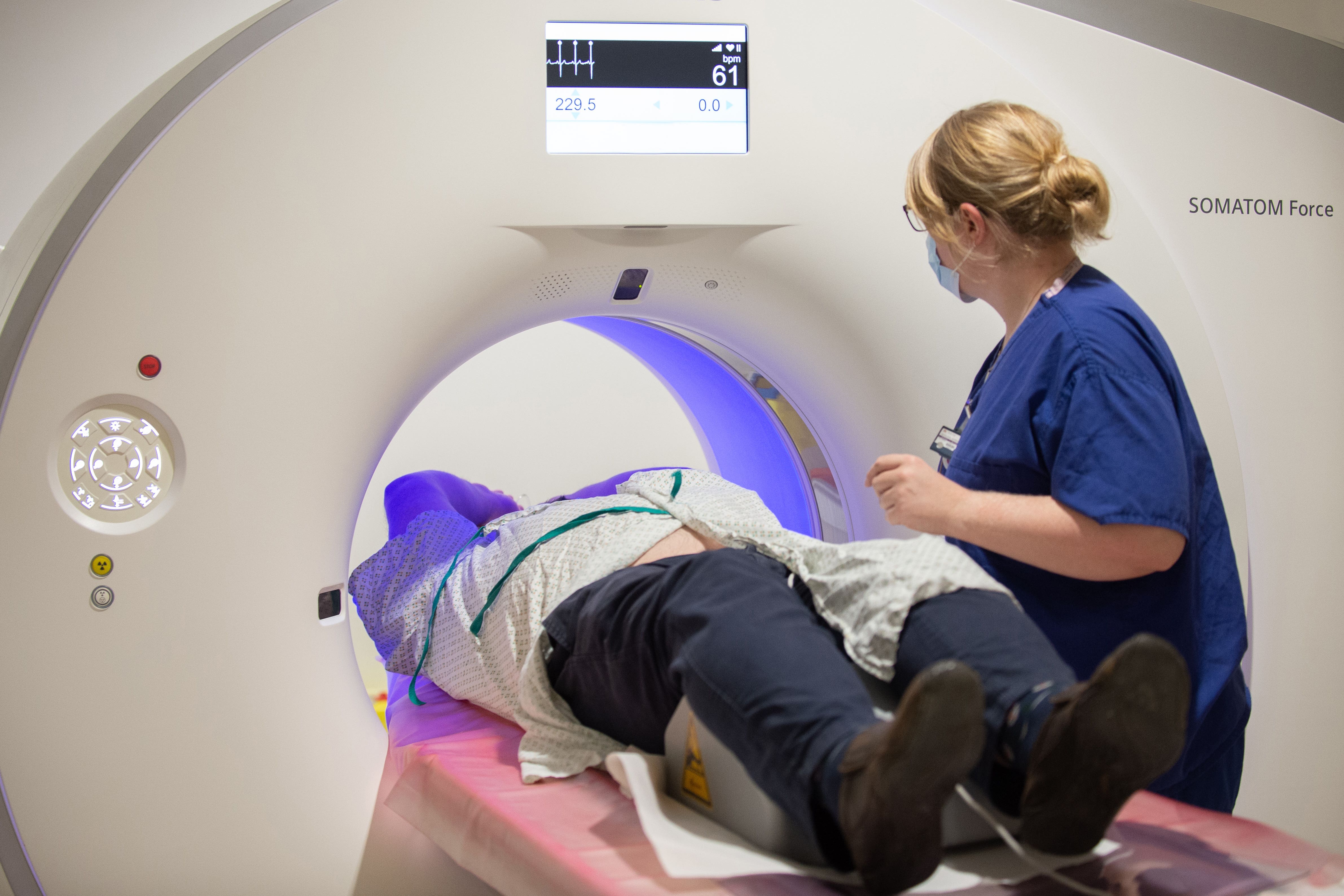Lives ‘at risk’ as some patients wait nearly five years for key tests – Tories
The Scottish Conservatives warned of a ‘ticking timebomb’ for the NHS.

Your support helps us to tell the story
From reproductive rights to climate change to Big Tech, The Independent is on the ground when the story is developing. Whether it's investigating the financials of Elon Musk's pro-Trump PAC or producing our latest documentary, 'The A Word', which shines a light on the American women fighting for reproductive rights, we know how important it is to parse out the facts from the messaging.
At such a critical moment in US history, we need reporters on the ground. Your donation allows us to keep sending journalists to speak to both sides of the story.
The Independent is trusted by Americans across the entire political spectrum. And unlike many other quality news outlets, we choose not to lock Americans out of our reporting and analysis with paywalls. We believe quality journalism should be available to everyone, paid for by those who can afford it.
Your support makes all the difference.Patients’ lives are being “put at risk” after figures revealed some waited almost five years for key diagnostic tests, the Scottish Conservatives say.
One patient in NHS Grampian waited 258 weeks for a CT scan while another in the health board waited 255 weeks for an MRI scan in what the party says is a “ticking timebomb” for the NHS.
Freedom of Information requests (FoI) by the party have revealed the longest recorded waits for one of the eight key diagnostic tests on which Public Health Scotland publishes information.
Another patient waited 107 weeks for a non-obstetric ultrasound, the longest wait for that kind of diagnostic test.
In NHS Tayside, a patient waited almost four years for an upper endoscopy, with another waiting almost three years for a colonoscopy.
Another patient in the NHS Greater Glasgow and Clyde area waited 187 weeks for a lower endoscopy, while another waited 145 weeks for a cystoscopy.
The Tories’ shadow health secretary, Dr Sandesh Gulhane, said the figures were the most extreme waits, but claimed there was a “general trend” of more and more patients waiting to undergo diagnostic tests.
Dr Gulhane said the waiting times are “scarcely believable” and branded the figures “shocking and shameful”.
These deeply concerning issues are not confined to one health board either, the lengthy delays are occurring right across Scotland
He said: “These diagnostic tests are potentially life-saving so it is vital patients undergo them as quickly as possible.
“It is scarcely believable that certain patients have been waiting almost five years for one of these tests. These deeply concerning issues are not confined to one health board either, the lengthy delays are occurring right across Scotland.
“The number of patients waiting on a key diagnostic test has now soared past 150,000 under the stewardship of Humza Yousaf. His flimsy NHS recovery plan, which is now well over a year old, has failed to remobilise frontline services like lifeline cancer services.
“Patients are suffering longer and longer delays as a result of his inaction, often with no end in sight. Successive SNP health secretaries’ failures on workforce planning are coming home to roost and nothing Humza Yousaf has done since he has been in post has improved that situation.
“The SNP have not met the target waiting times for all cancer patients to begin cancer treatment for a decade. They cannot hide behind the pandemic as an excuse for their overwhelming failures.
“The Scottish Conservatives have exposed deep-rooted issues at the very heart of our NHS and the buck stops with Humza Yousaf. His tenure as Health Secretary has been a disaster for suffering patients and over-stretched staff. He must be sacked now.”
Health boards have developed plans to increase capacity, workforce and activity
Health Secretary Humza Yousaf said: “The NHS is experiencing its most challenging winter yet and we must recognise the enormous impact of the pandemic on our health service, and on non-emergency treatment.
“We are determined to clear the backlog of planned care appointments caused by the pandemic and have set ambitious targets to ensure patients waiting too long are seen more quickly.
“Health boards have developed plans to increase capacity, workforce and activity.
“Six mobile MRI and five mobile CT scanners will help people get the diagnostic tests they need, and additional activity throughout the week including weekends, such as weekend endoscopy sessions, will help reduce diagnostic waits.
“Our £70 million endoscopy and urology diagnostic recovery and renewal plan is increasing capacity and supporting workforce training. Mobile endoscopy units are providing access to an additional six endoscopy rooms.”